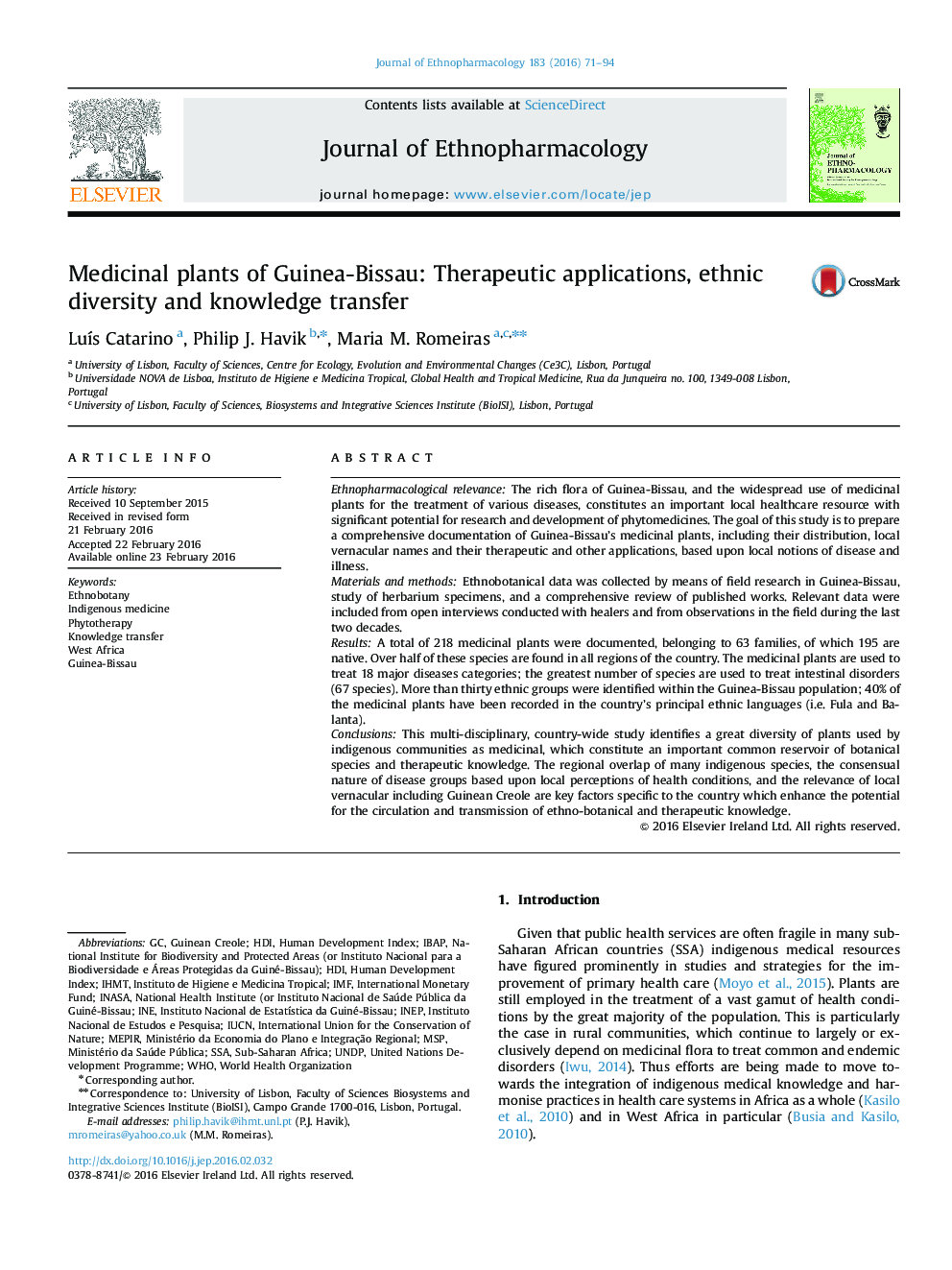| کد مقاله | کد نشریه | سال انتشار | مقاله انگلیسی | نسخه تمام متن |
|---|---|---|---|---|
| 2544868 | 1560379 | 2016 | 24 صفحه PDF | دانلود رایگان |
Ethnopharmacological relevanceThe rich flora of Guinea-Bissau, and the widespread use of medicinal plants for the treatment of various diseases, constitutes an important local healthcare resource with significant potential for research and development of phytomedicines. The goal of this study is to prepare a comprehensive documentation of Guinea-Bissau’s medicinal plants, including their distribution, local vernacular names and their therapeutic and other applications, based upon local notions of disease and illness.Materials and methodsEthnobotanical data was collected by means of field research in Guinea-Bissau, study of herbarium specimens, and a comprehensive review of published works. Relevant data were included from open interviews conducted with healers and from observations in the field during the last two decades.ResultsA total of 218 medicinal plants were documented, belonging to 63 families, of which 195 are native. Over half of these species are found in all regions of the country. The medicinal plants are used to treat 18 major diseases categories; the greatest number of species are used to treat intestinal disorders (67 species). More than thirty ethnic groups were identified within the Guinea-Bissau population; 40% of the medicinal plants have been recorded in the country’s principal ethnic languages (i.e. Fula and Balanta).ConclusionsThis multi-disciplinary, country-wide study identifies a great diversity of plants used by indigenous communities as medicinal, which constitute an important common reservoir of botanical species and therapeutic knowledge. The regional overlap of many indigenous species, the consensual nature of disease groups based upon local perceptions of health conditions, and the relevance of local vernacular including Guinean Creole are key factors specific to the country which enhance the potential for the circulation and transmission of ethno-botanical and therapeutic knowledge.
Figure optionsDownload high-quality image (251 K)Download as PowerPoint slide
Journal: Journal of Ethnopharmacology - Volume 183, 13 May 2016, Pages 71–94
